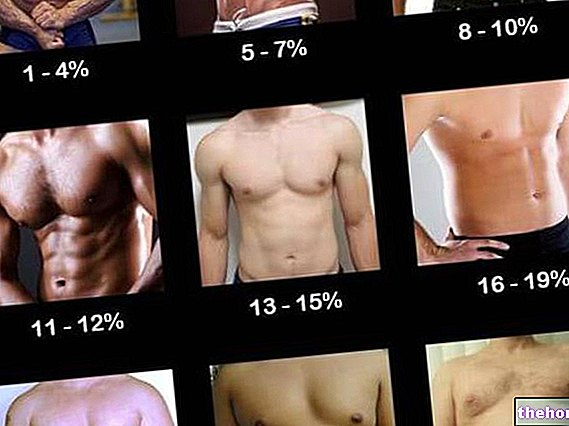Hunger
Hunger is one of the primary drives, an intense stimulus linked to the primordial survival instinct. Yet, despite this, food intake is often influenced by factors that have very little ancestral.

Unlike what happens in animals, for humans, hunger is not the simple result of physiological needs. We realize this when at the end of a hearty meal, despite the fact that the belt of our trousers clearly indicates that we should stop eating. , we don't know how to give up a slice of dessert. Another common experience concerns the inability to detach oneself from a jar of chocolate, despite a psyche strongly torn between greed, guilt and the first signs of indigestion, suggests the opposite.
Nervous hunger control
The control of food intake in man fully reflects the extraordinary degree of efficiency and genius with which the whole organism is organized. Two hypothalamic centers, influenced by numerous neurotransmitters and hormones, send signals that push or not the search for food. In fasting conditions the hunger center is active, after the meal the satiety center prevails. These centers receive innumerable regulatory signals, some of which are more relevant than the others. The intense research on the physiological mechanisms underlying that fearful and troubling called obesity, led to the formulation of several theories, let's see the main ones.
The most important stimulus for regulating appetite is blood sugar. Brain receptors constantly monitor the concentration of glucose in the blood. As soon as blood sugar tends to drop below the guard values, the stimulus of hunger is triggered. Conversely, when glucose occurs. blood rises excessively the brain understands that it is no longer necessary to eat.
The hunger and satiety centers are heavily influenced by the body's fat deposits. When the fat stores begin to run low, the hunger center stimulates food intake.
As soon as the fat deposits are replenished, the brain receives an inhibitory signal on the stimulus of hunger.
In support of the lipostatic theory, an interesting study was published a few years ago on the relationship between leptin and overweight. This "hormone, encoded by the" obesity "gene (OB gene), acts at the hypothalamic level, determining the sense of satiety. If the fat deposits increase, the production of leptin is stimulated, if instead they decrease, the caloric intake is favored by the reduced secretion of the hormone.
Mice lacking the OB gene, given the correlated absence of leptin, gain weight at sight. However, things are not so simple in humans, since many are obese despite having high plasma concentrations of leptin.
How to explain all this? The answer is the same as we gave to those who asked us why he suffered from hypercholesterolemia despite a cholesterol-free diet, or suffered from osteoporosis problems despite the use of massive calcium and vitamin D supplements.
The human organism is based on very fine regulation systems which aim to maintain homeostasis, that is the stability and equilibrium of the internal environment. It follows that every action is followed by an equal and opposite reaction which tends to bring the system back into equilibrium. To preserve health and improve the efficiency of the system, the body uses an integrated network of signals, able to interact and influence each other. So, if one of them goes haywire, the stability of the system is still ensured by the " activation of signals with similar function.
Similarly, hunger is the result of an intricate cluster of neuroendocrine impulses activated by physical, chemical, mechanical and psychological signals.
Some peptides that modulate food intake
Psychological Factors
This is why a true cure for obesity, an effective cure, must take into consideration anatomical, physiological, biochemical and psychological elements which, taken together, make it possible to identify valid therapeutic paths.
The act of eating does not necessarily indicate a need for food, but can hide anxieties, fears and positive feelings, such as the desire to share what you have with your loved one. In the search for food there are also cultural factors: while in industrialized countries few would be enthusiastic about the idea of a meal based on worms, in some regions of Africa the caterpillar is one of the most popular foods.
The mood, the unconscious and rationality are the main culprits of the attacks of uncontrolled hunger. Depression, for example, is often accompanied by pangs of anxious hunger for those foods, such as sweets, which evoke pleasant memories and temporarily improve the mood.
Hunger and appetite are not synonymous. While the first term is used to indicate that instinctive and uncontrollable sensation that drives us to the immediate search for food, the appetite pays more attention to the qualitative aspect of food.
More articles on "Hunger: What Do Hunger Attacks depend on?"
- Control hunger
- Satiating foods
- satiety


---consigli-e-controindicazioni.jpg)
























